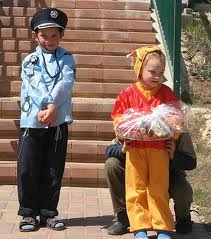How Cleaning the Refrigerator Helps Us Come Closer to Hashem

“You’re beautiful, but you’re empty...One couldn’t die for you. Of course, an ordinary passerby would think my rose looked just like you. But my rose, all on her own, is more important than you hundreds of other roses; because it is she that I have watered… she that I have sheltered behind the screen…Because she is my rose.” (The Little Prince, Antoine de Saint-Exupery)
I couldn’t help thinking of this passage from the beautiful classic, The Little Prince, as I stood in my kitchen a week before Pesach, a toothpick in my hand and a bucket of one-third bleach and two-thirds cleanser at my feet.
Life is so interesting, so full of adventures waiting to happen, and here I am, aching and tired, racing towards the deadline of bedikas chametz night. Hashem, is this really what You want me to be doing? Is my destiny really meant to be about obsessing over a breadcrumb that has escaped under the vegetable bin?











